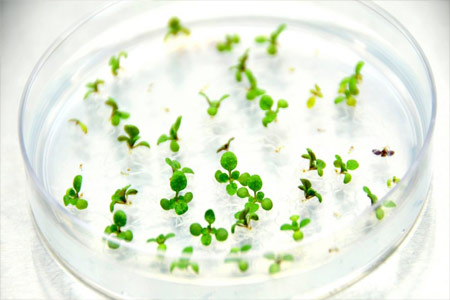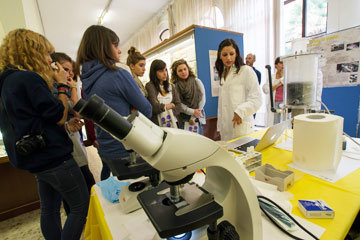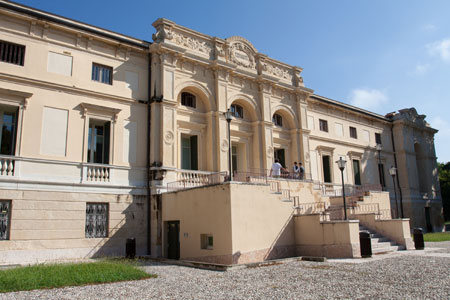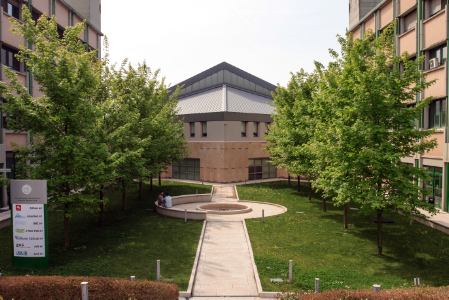- Authors:
-
Jasnic Savovic, Jovana; Nestorovic, Aleksandra; Savic, Slobodan; Karasek, Sinisa; Vitulo, Nicola; Valle, Giorgio; Faulkner, Georgine; Radojkovic, Dragica; Kojic, Snezana
- Title:
-
Profiling of skeletal muscle Ankrd2 protein in human cardiac tissue and neonatal rat cardiomyocytes
- Year:
-
2015
- Type of item:
-
Articolo in Rivista
- Tipologia ANVUR:
- Articolo su rivista
- Language:
-
Inglese
- Referee:
-
No
- Name of journal:
- HISTOCHEMISTRY AND CELL BIOLOGY
- ISSN of journal:
- 0948-6143
- N° Volume:
-
143
- Number or Folder:
-
6
- Page numbers:
-
583-597
- Keyword:
-
Animals; COS Cells; Cells, Cultured; Cercopithecus aethiops; Humans; Immunohistochemistry; Muscle Proteins; Muscle, Skeletal; Myocardium; Myocytes, Cardiac; Nuclear Proteins; Rats; Rats, Wistar; Repressor Proteins
- Short description of contents:
- Muscle-specific mechanosensors Ankrd2/Arpp (ankyrin repeat protein 2) and Ankrd1/CARP (cardiac ankyrin repeat protein) have an important role in transcriptional regulation, myofibrillar assembly, cardiogenesis and myogenesis. In skeletal muscle myofibrils, Ankrd2 has a structural role as a component of a titin associated stretch-sensing complex, while in the nucleus it exerts regulatory function as transcriptional co-factor. It is also involved in myogenic differentiation and coordination of myoblast proliferation. Although expressed in the heart, the role of Ankrd2 in the cardiac muscle is completely unknown. Recently, we have shown that hypertrophic and dilated cardiomyopathy pathways are altered upon Ankrd2 silencing suggesting the importance of this protein in cardiac tissue. Here we provide the underlying basis for the functional investigation of Ankrd2 in the heart. We confirmed reduced Ankrd2 expression levels in human heart in comparison with Ankrd1 using RNAseq and Western blot. For the first time we demonstrated that, apart from the sarcomere and nucleus, both proteins are localized to the intercalated disks of human cardiomyocytes. We further tested the expression and localization of endogenous Ankrd2 in rat neonatal cardiomyocytes, a well-established model for studying cardiac-specific proteins. Ankrd2 was found to be expressed in both the cytoplasm and nucleus, independently from maturation status of cardiomyocytes. In contrast to Ankrd1, it is not responsive to the cardiotoxic drug Doxorubicin, suggesting that different mechanisms govern their expression in cardiac cells.
- Product ID:
-
95327
- Handle IRIS:
-
11562/955544
- Last Modified:
-
November 15, 2022
- Bibliographic citation:
-
Jasnic Savovic, Jovana; Nestorovic, Aleksandra; Savic, Slobodan; Karasek, Sinisa; Vitulo, Nicola; Valle, Giorgio; Faulkner, Georgine; Radojkovic, Dragica; Kojic, Snezana,
Profiling of skeletal muscle Ankrd2 protein in human cardiac tissue and neonatal rat cardiomyocytes
«HISTOCHEMISTRY AND CELL BIOLOGY»
, vol.
143
, n.
6
,
2015
,
pp. 583-597
Consulta la scheda completa presente nel
repository istituzionale della Ricerca di Ateneo 








